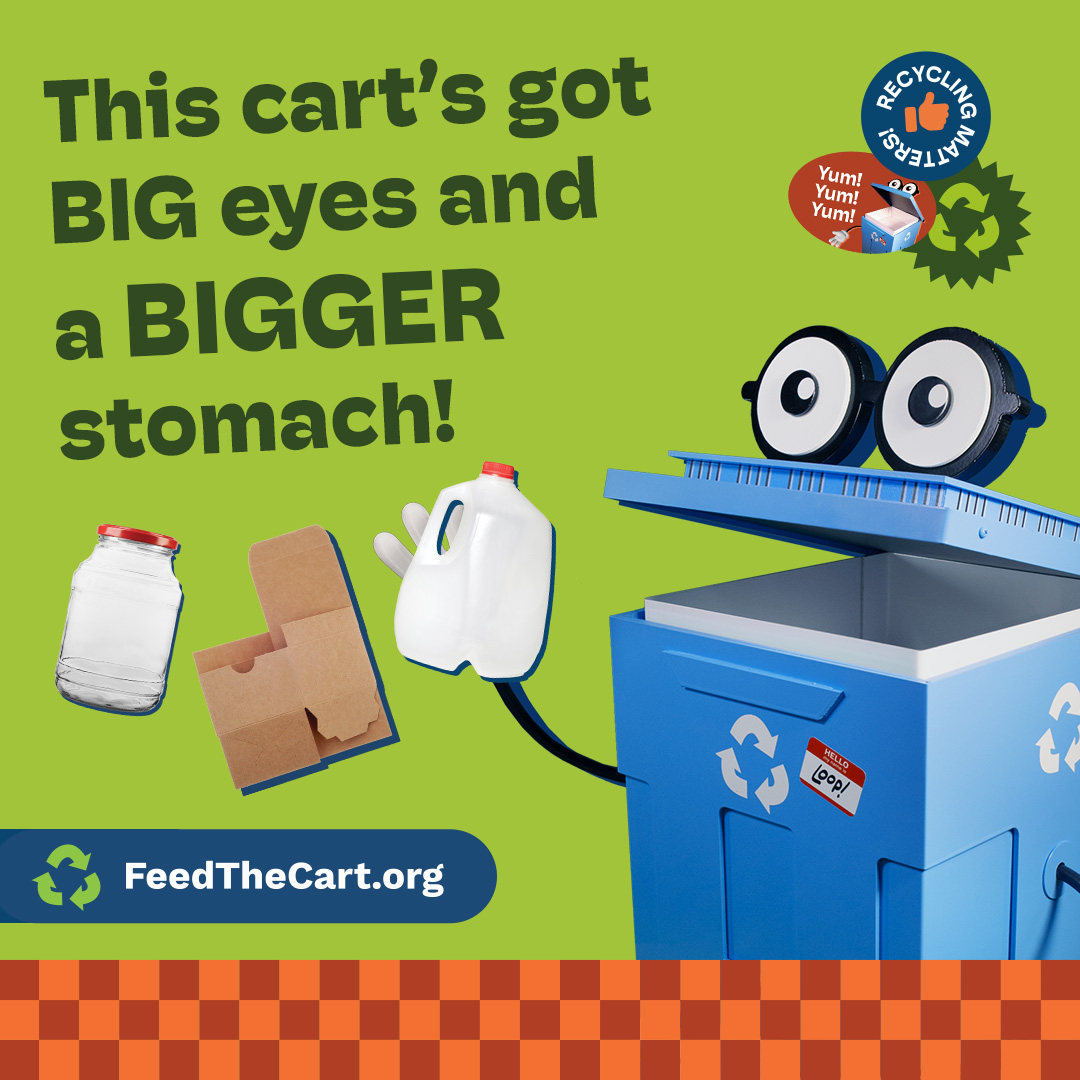Feed the Cart Education Campaign
US EPA Grant Funds Recycling Education
In a first-of-its-kind effort, Will County joined DuPage, Kane, and McHenry Counties; the Solid Waste Agencies of Lake County and Northern Cook County; along with the Metropolitan Mayors Caucus to launch the “Feed the Cart” recycling education and outreach campaign.
Through a highly competitive grant process, the U.S. Environmental Protection Agency awarded the group the largest Recycling Education and Outreach grant in Illinois in over 30 years. The funded campaign aims to increase recyclables’ tonnage by 15% before 2030.
This marks the first time in the State's history that such a coordinated recycling education campaign has been launched.
On October 20, 2025, leaders with the Metropolitan Mayors Caucus (MMC), a partnership of 275 local governments in Metro Chicago, announced the campaign’s kickoff at the Lakeshore Recycling Systems (LRS) Exchange, a $50 million state-of-the-art material recovery facility located in the Back of the Yards neighborhood of Chicago.
The goals of the campaign are to:
- Engage Chicagoland residents by promoting the environmental and economic benefits of recycling.
- Educate residents to increase recycling and reduce contamination at the community level.
- Improve the quality of materials placed into the recycling stream throughout the region, resulting in a less contaminated, more marketable stream of recyclables.
- Encourage residents and businesses to “buy recycled,” to seek out products made from recycled material or packaged in post-consumer recycled content.
.jpg) “Every bottle, box, and can we recycle brings us one step closer to a sustainable Chicagoland where both the environment and our communities thrive,” said Kevin Burns, City of Geneva Mayor and Chairman of the MMC’s Environment and Energy Committee.
“Every bottle, box, and can we recycle brings us one step closer to a sustainable Chicagoland where both the environment and our communities thrive,” said Kevin Burns, City of Geneva Mayor and Chairman of the MMC’s Environment and Energy Committee.
Officials at the press event introduced “Loop,” a cartoon-like mascot that will serve as the recycling campaign’s education champion. He will feature in various education tactics for the “Feed the Cart” campaign, including the new website (FeedTheCart.org), social media presence, grassroots outreach, public relations, and other marketing.
Recycling programs in the Chicago area are well-established, as surveys show a majority of residents embrace recycling as a daily sustainability action they can take. The total amount of regional recyclable materials collected in 2024 was nearly 573,000 tons — the equivalent of filling the Chicagoland Speedway in Joliet to a height of about 57 feet. The materials would weigh nearly three Willis Towers.
At the same time, the diversion rates in the Chicagoland region are stalled at 30-35%, falling short of the EPA’s National Recycling Goal of 50% by 2030 and the Metro counties’ individual diversion goals. Contamination in the recycling stream is also a significant problem, which increases the cost of recycling that is borne by municipalities and residents.
“We are excited to introduce our campaign that will remind everyone how simple and important it is to recycle properly. By increasing our recycling rate, we not only conserve natural resources but also generate significant economic benefits, supporting thousands of jobs and injecting billions of dollars into our economy,” Burns said.
The MMC will measure the impact of the three-year campaign and report its results upon completion in 2027.